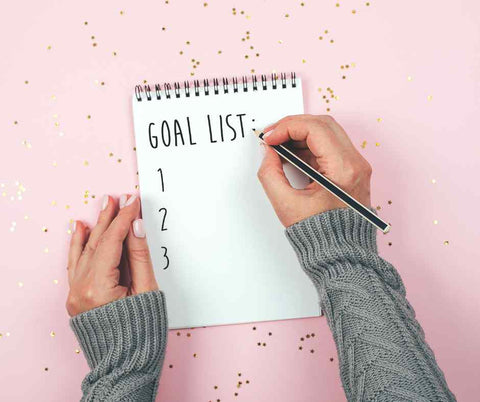From Wishful Thinking to Actionable Plans: How to Write New Year's Resolutions That Work
New Year's resolutions are a time-honored tradition, with millions of people around the world making promises to themselves to improve their lives in some way. Whether it's to lose weight, quit smoking, or save money, people often see the start of a new year as a fresh start and an opportunity to make positive changes.
"What the new year brings to you will depnd a great deal on what you bring to the new year." - Vern Mclellan
But while making resolutions is a noble pursuit, it's also important to approach them with realistic expectations. Many people make grandiose promises to themselves, only to find that they are unable to follow through and end up feeling discouraged and defeated. They might also try to make too many changes all at once and give up easily because they feel overwhelmed.
One key to making successful New Year's resolutions is to focus on small, manageable goals and build daily habits around those goals. Instead of setting a goal to lose 50 pounds, for example, you might set a goal to lose five pounds in the first month. To achieve this goal, you plan on creating a habit of going to the gym two times per week (maybe more if you are already in the habit of going to the gym). At the end of the month, then reassess and set a new goal for the next month. By setting smaller, more achievable goals, you can build momentum and confidence, and gradually work towards your ultimate goal. The key is to build regular habits to make long term changes.

Instead of trying to make several changes at once, why not try to create a new habit each month? Each month you focus on creating one new habit to help you reach your goal and you spend 30 days building the habit before you introduce a new habit.

It is important to make sure your goals are specific, measurable, and actionable. Instead of simply resolving to "exercise more," for example, you might set a goal to go to the gym three times a week, or to walk or run for 30 minutes every day. By making your goals specific and measurable, you can track your progress and hold yourself accountable.

The key to success is to have a plan in place to help you stay on track. This might include things like finding a workout buddy to hold you accountable or setting reminders on your phone to remind you to stick to your goals. You might also consider joining a support group or finding an online community to provide motivation and encouragement.
While making your New Year’s resolutions, we encourage you to think differently and make resolutions for how you plan to make an impact and make a difference. What steps will you take to add kindness to the world around you? Will this be the year you prioritize volunteering or making additional donations to charitable organizations? What will you do to give back and make the world a better place? Make this year the year that you add making a difference to your New Year’s resolutions.

Finally, it's important to remember that New Year's resolutions are not a one-time thing. They require ongoing effort and commitment to be successful. If you find yourself struggling to stick to your goals, don't be discouraged. Instead, reassess and adjust your plan, and continue to work towards your goals.
While making New Year's resolutions is a great way to improve your life, it's important to approach them with realistic expectations and a plan to help you stay on track. By setting specific, achievable goals and having a support system in place, you can increase your chances of success and make meaningful progress towards your goals in the new year.

Leave a comment